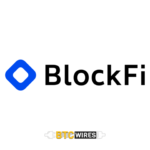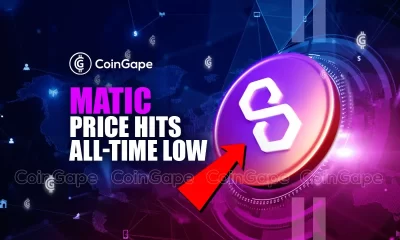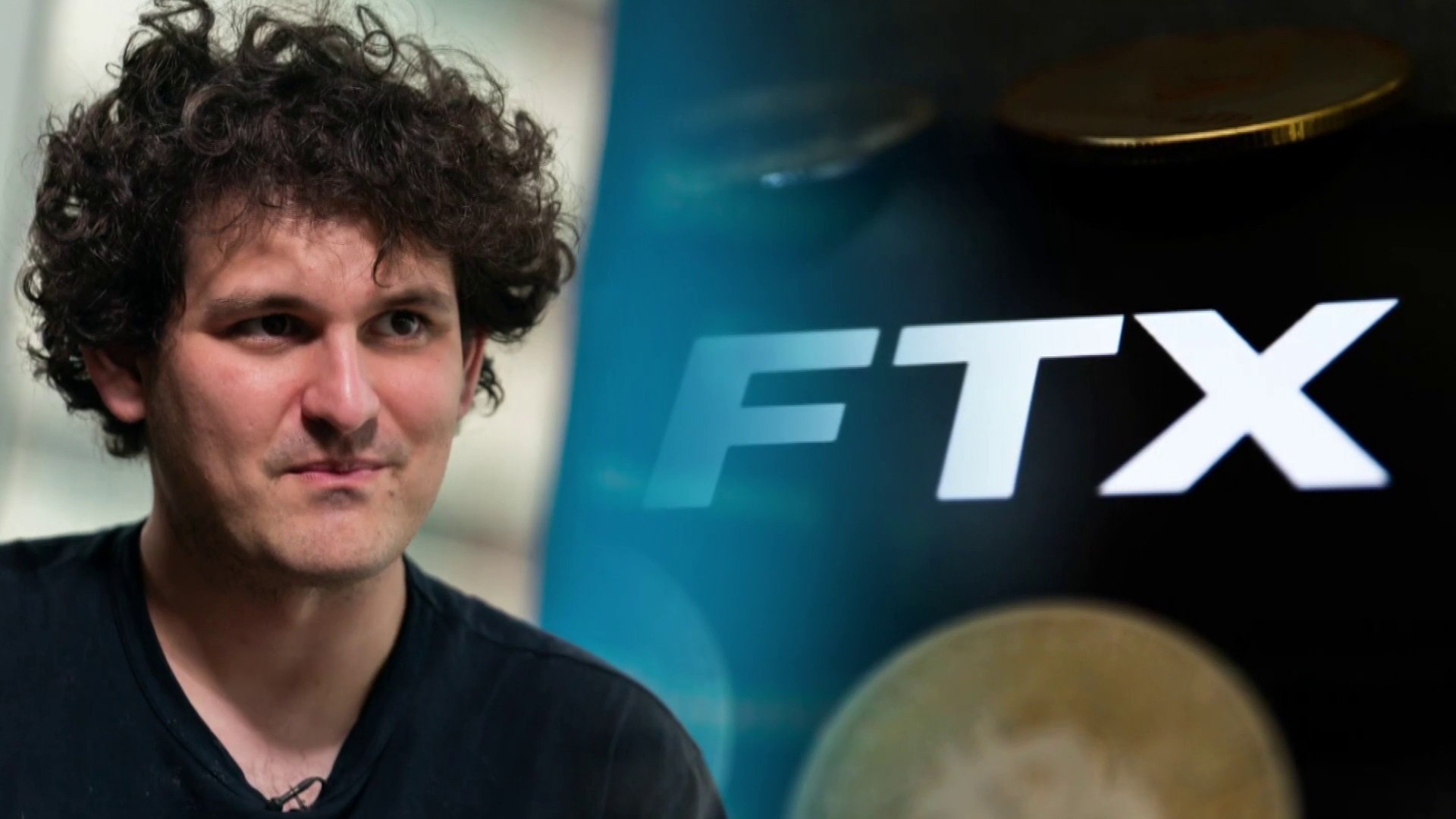BlockFi
BlockFi to give over$ 100K in refunds to California clients
Published
1 year agoon
By
admin
At least 111 BlockFi borrowers had continued repaying loans between Nov. 11 and Nov. 22, indeed though they did not need to, according to court documents.
void crypto lender BlockFi has agreed to reimburse further than $100,000 to California guests that had continued to repay loans indeed after a trading halt on Nov. 10 last time.
In a March 27 statement, California’s Department of Financial Protection and Innovation said that its disquisition had discovered that at least 111 borrowers in California made roughly $103,471 in loan disbursements between Nov. 11 and Nov. 22.
The fiscal watchdog claimed that BlockFi failed to “ give timely announcement to borrowers that they could stop repaying their BlockFi loans. ”
The DFPI claims that borrowers weren’t notified untilNov. 22 that they could stop repaying their BlockFi Loans “ until farther notice. ”
According to documents, BlockFi requested authorization from the ruin court to return these payments to the borrowers in a stir filed with the court on Feb. 24.
The refunds will be suitable to go ahead if the stir is approved, with a hail listed for April 19.
Meanwhile, the DFPI said BlockFi has agreed to an ” interim suspense ” of its California Financing Law( CFL) license while “ the ruin and cancellation conduct are pending. ”
still, including interest and late freights and all finances paid following the November 10th platform pause, ” according to the DFPI documents, “ If this stir is granted BlockFi agrees to direct the Servicer to timely return borrowers’ payments.
Unless else ruled by the ruin court, the controller said BlockFi’s agreement to the interim suspense means it’ll continue to direct its agents to break the collection of disbursements for California guests on loans, interest payments and “ not charge, levy, or assess any late freights associated with any payments, including at maturity. ”
BlockFi has also agreed to continue not reporting to credit agencies that loans from California residents have come tardy or defaulted on or after Nov. 11, and won’t take “ any action that may harm California residents ’ credit scores on similar loans. ”
According to the DFPI, Commissioner ClothildeV. Hewlett suspended BlockFi’s lending license for 30 days onNov. 11 and moved to drop BlockFi’s CFL license onDec. 15,.
BlockFi halted customer recessions and requested guests not to deposit to BlockFi holdalls or Interest Accounts on Nov. 10, citing a lack of clarity around the collapse of FTX.
By Nov. 28, BlockFi filed for Chapter 11 ruin for the company and its eight accessories. BlockFi International filed for ruin with the Supreme Court of Bermuda on the same day.
The post BlockFi to give over$ 100K in refunds to California clients first appeared on BTC Wires.
Source link
You may like


Coinbase stock to $1,700? This crypto investor thinks so


Multicoin Capital To Fund Crypto-Friendly US Candidates In Solana


Multicoin to Match Up to $1 Million in Solana Donations to Pro-Crypto Candidates


Multicoin Capital pledges up to $1m to pro-crypto Senate candidates


MATIC Price Crash: Reaching A Two Year Low


Multicoin Pledges up to $1M for Pro-Crypto Senate Candidates
24/7 Cryptocurrency News
Federal Reserve Moves Against Evolve Bank, Is Another Regional Bank Collapse In View?
Published
3 weeks agoon
June 14, 2024By
admin
The Federal Reserve has recently delivered a cease and desist order to Evolve Bank and Trust for engaging in “unsafe and unsound banking practices” and having an inadequate AML program. This has focused on the bank, especially given the recent mishaps of the financial technology firms linked with Evolve.
Evolve Bank Scrutinized by Federal Reserve
The cryptocurrency industry and the fintech sectors’ banking service provider, Evolve Bank and Trust, are set to encounter new hurdles after the Federal Reserve’s order. The bank will be required to present detailed proposals for its measures to ensure compliance with the laws on internal and anti-money laundering standards. These directives arise from apparent weaknesses in the bank’s collaborations with fintech firms, especially the recent debacle with Synapse Financial Technologies. This has caused Synapse to have different account balances, impacted fintech clients like Yotta, and added more problems to Evolve’s operations.
It has also benefited from partnerships with major crypto firms such as BlockFi and FTX. These firms have gone through a lot of pressure, and the banks have offered them much-needed financial services. For example, the bankruptcy of FTX provided that FTX had about $10 million in Evolve accounts. Also, Protos and a US Secret Service affidavit reports show that Evolve was also used by the alleged fraudsters in ‘pig-butchering’ scams, which posed another compliance and operations risk to the bank.
Fed Maintains Rates Amid Evolve Bank Issues
These are the problems that occurred at Evolve Bank and Trust. They indicate the more significant issues within the financial services industry regarding the soundness and legal permissibility of banks that are very active in the fintech and cryptocurrency space.
These recent actions by the Federal Reserve depict some of the dangers that can be posed by these partnerships to the financial systems. This way, Evolve deals with the above-listed regulatory issues, and its impact spreads across the entire fintech industry, influencing the customers’ trust and the operational environment of the fintech partners.
The Fed most recently left the benchmark federal funds rate at 5. 25% and 5. 50 % reflects the regulator’s conservative stance, especially on matters related to the economy. Speaking in New York, Federal Reserve Chairman Jerome Powell said that keeping the current interest rate is crucial to support the economic recovery of the United States even with the decrease in inflation rates. This decision aligns with the current measures to guarantee that other financial institutions, such as Evolve, are running within the acceptable standards of safe and sound banking practices.
The regulatory actions against Evolve coincide with significant legislative discussions concerning the role of the Federal Reserve. U.S. Congressman Thomas Massie’s proposed bill to eliminate the Fed reflects a growing sentiment among certain groups advocating for major reforms in the central banking system. This proposal has garnered substantial support from the online Bitcoin community, highlighting the ongoing debate over the future of monetary policy and regulation in the United States.
Also Read: Ripple CLO Criticizes Gensler’s Use of “Crypto Asset Securities”
Maxwell is a crypto-economic analyst and Blockchain enthusiast, passionate about helping people understand the potential of decentralized technology. I write extensively on topics such as blockchain, cryptocurrency, tokens, and more for many publications. My goal is to spread knowledge about this revolutionary technology and its implications for economic freedom and social good.
The presented content may include the personal opinion of the author and is subject to market condition. Do your market research before investing in cryptocurrencies. The author or the publication does not hold any responsibility for your personal financial loss.
Source link
Alameda Research
Insights Into Alameda’s Financial Stability In FTX Trial
Published
9 months agoon
October 14, 2023By
admin
The trial against FTX co-founder Sam Bankman-Fried took an intriguing turn as Zac Prince, the CEO of defunct crypto lender BlockFi, provided testimony in a Manhattan federal courtroom.
Prince’s appearance provided valuable insights into the intricate relationship between BlockFi, FTX, and Alameda Research.
BlockFi’s Bankruptcy Rooted In Alameda And FTX
According to a Bloomberg report, Prince revealed that BlockFi had substantial exposure to Alameda and FTX, estimated at around $1 billion, at the time of BlockFi’s failure in November 2022.
Prince asserted that if the loans to Alameda were still in good standing and the funds on FTX were available, BlockFi would not have filed for bankruptcy. This statement suggests that BlockFi’s financial troubles were closely tied to the collapse of Alameda and FTX.
Prince’s testimony diverged significantly from Caroline Ellison, the government’s star witness, who portrayed Bankman-Fried as the mastermind behind a fraudulent scheme using FTX customer funds for speculative trading at Alameda.
Prince’s account positioned BlockFi as a victim of Bankman-Fried’s alleged schemes, claiming that BlockFi made loans to Alameda based on misleading balance sheets.
Defense lawyers sought to emphasize that BlockFi willingly provided the loans to Alameda, with knowledge of the associated risks.
Creditors Accuse BlockFi Of Inadequate Due Diligence
Prince discussed BlockFi’s due diligence process regarding Alameda’s collateral, comprised of tokens affiliated with FTX. The judge requested plainer terms during Prince’s explanation, prompting an analogy using car loans.
Per the report, the prosecution questioned the adequacy of BlockFi’s due diligence, as creditors accused the company of failing to recognize warning signs before offering substantial loans to Alameda.
Prince’s testimony highlighted that providing “unaudited balance sheets” is an industry norm for borrowers seeking loans. The defense sought to establish that BlockFi knew the risks of lending to Alameda and acted within industry norms.
Zac Prince’s testimony in the trial against Sam Bankman-Fried provided a deeper understanding of the intertwined relationships within the crypto industry. BlockFi’s exposure to Alameda and FTX and its subsequent bankruptcy offered insights into the potential repercussions of alleged fraudulent activities.
The differing narratives presented by the prosecution and defense underscore the complexities of the case. As the trial unfolds, the court will continue to examine the details surrounding BlockFi’s lending practices and the extent of Bankman-Fried’s involvement in the alleged schemes.
It is important to note that BlockFi can no longer be utilized for crypto-related activities, as the company declared bankruptcy and suspended withdrawals in November 2022. The bankruptcy filing indicates that BlockFi owes between $1 billion and $10 billion to over 100,000 creditors.
Featured image from NBC, chart from TradingView.com
Source link
Blockchain
Coinbase-Backed DeSo Unveils MegaSwap, a “Stripe for Crypto” product, with Over $5 Million in Volume – Blockchain News, Opinion, TV and Jobs
Published
1 year agoon
February 7, 2023By
admin
DeSo is excited to announce the launch of MegaSwap – a revolutionary, cross-chain smart service that enables users to securely and easily swap coins between different blockchains with a frictionless zero-login. MegaSwap solves various critical pain points, including onboarding new users and liquidity to any web3 application across any blockchain ecosystem.
In its limited release, the platform has already seen more than $5 million in volume, demonstrating its potential to revolutionize the crypto market with cross-chain swaps.
MegaSwap offers an alternative and safer solution to the traditional centralized exchange model where users don’t ever have to log in or provide sensitive personal information. Instead of storing their coins on a centralized exchange, users can store them in their own self-custody wallets to mitigate the risk of unforeseen meltdowns, such as those seen with FTX, BlockFi, Celsius, or Voyager.
MegaSwap is a simple, innovative solution for developers seeking to build web3 applications on different blockchains. Developers can install its frictionless zero-login API with a single line of code, making their apps chain-agnostic and accessible from any blockchain. For the first time, apps on Ethereum can easily compose with apps on Solana or DeSo. MegaSwap thus makes it easier for liquidity and new users to be onboarded into any blockchain ecosystem.
“One of the biggest use cases we think will have the greatest impact is onboarding new users that don’t own your coin. That all changes with MegaSwap, where devs can leverage crypto-to-crypto swaps between any two coins no matter what blockchain ecosystem they’re in. This last use case is a great wedge because it solves the biggest pain point for every blockchain dev today: getting new users without making them buy your coin on an exchange.” – Founder of DeSo, Nader Al-Naji, explains.
The blockchain ecosystem is currently fragmented, making it hard for users who want to try out different web3 apps. With MegaSwap, users can easily and securely swap between Ethereum, Solana, Bitcoin, DeSo, and USDC, with support coming soon for other blockchains like NEAR, ADA, Doge, and more! This makes it easier than ever to move funds between blockchains allowing communities to seamlessly navigate from app to app.
DeSo is committed to creating a Social Layer for Web3 that allows communities to seamlessly transition between different blockchains. The launch of MegaSwap is a testament to this commitment and eliminates a major hurdle preventing the mass adoption of cryptocurrencies.
This is yet another example in a recent string of successes for DeSo. Recently, they launched a breakthrough fundraising platform called Openfund that enables entrepreneurs to launch tradeable coin-backed fundraising rounds via the world’s fastest order book exchange.
With the combination of Openfund and MegaSwap, founders and builders can easily fund projects, acquire new users, and expand their reach with a comprehensive suite of powerful tools in the DeSo ecosystem.
They also recently partnered with Princeton University to launch the first-of-its-kind web3 startup competition and have a slew of upcoming releases that will position DeSo as the go-to layer-1 blockchain to build decentralized social media applications.
Additionally, the Social Network Hard Fork just went live, enabling decentralized verifications. They plan to move to a proof of stake later this year, improving performance and energy efficiency.
DeSo is a new layer-1 blockchain built from the ground up to decentralize social media and scale storage-heavy applications to billions of users. It raised $200 million and is backed by Sequoia, Andreessen Horowitz, Coinbase Ventures, Social Capital, Polychain Capital, Winklevoss Capital, Pantera, and other blue chip funds.
Check out the full roadmap and claim your username on deso.com.
Source link

Coinbase stock to $1,700? This crypto investor thinks so

Multicoin Capital To Fund Crypto-Friendly US Candidates In Solana

Multicoin to Match Up to $1 Million in Solana Donations to Pro-Crypto Candidates

Multicoin Capital pledges up to $1m to pro-crypto Senate candidates

MATIC Price Crash: Reaching A Two Year Low

Multicoin Pledges up to $1M for Pro-Crypto Senate Candidates

Crypto heists near $1.4b in first half of 2024: TRM Labs

FTX Founder Sam Bankman-Fried’s Family Accused Of $100M Illicit Political Donation

Bitcoin Price Falls as Mt Gox Starts Repayments

20% Price Drop Follows $87 Million Spending Outrage

More than 10 years since the collapse of Mt. Gox, users confirm reimbursements

Leading Telecom Company Taiwan Mobile Gets Crypto Exchange License

Here Are Price Targets for Bitcoin, Solana, and Render, According to Analyst Jason Pizzino

Bitcoin price plunges below $55k as Mt. Gox announces repayments

Jasmy Sheds 20% Amid Bitcoin Sell-Off

Bitcoin Dropped Below 2017 All-Time-High but Could Sellers be Getting Exhausted? – Blockchain News, Opinion, TV and Jobs

What does the Coinbase Premium Gap Tell us about Investor Activity? – Blockchain News, Opinion, TV and Jobs
BNM DAO Token Airdrop

NFT Sector Keeps Developing – Number of Unique Ethereum NFT Traders Surged 276% in 2022 – Blockchain News, Opinion, TV and Jobs
A String of 200 ‘Sleeping Bitcoins’ From 2010 Worth $4.27 Million Moved on Friday
New Minting Services

Block News Media Live Stream

SEC’s Chairman Gensler Takes Aggressive Stance on Tokens – Blockchain News, Opinion, TV and Jobs

Friends or Enemies? – Blockchain News, Opinion, TV and Jobs

Enjoy frictionless crypto purchases with Apple Pay and Google Pay | by Jim | @blockchain | Jun, 2022

How Web3 can prevent Hollywood strikes

Block News Media Live Stream

Block News Media Live Stream

Block News Media Live Stream

XRP Explodes With 1,300% Surge In Trading Volume As crypto Exchanges Jump On Board
Trending

 Altcoins2 years ago
Altcoins2 years agoBitcoin Dropped Below 2017 All-Time-High but Could Sellers be Getting Exhausted? – Blockchain News, Opinion, TV and Jobs

 Binance2 years ago
Binance2 years agoWhat does the Coinbase Premium Gap Tell us about Investor Activity? – Blockchain News, Opinion, TV and Jobs
- Uncategorized3 years ago
BNM DAO Token Airdrop

 BTC1 year ago
BTC1 year agoNFT Sector Keeps Developing – Number of Unique Ethereum NFT Traders Surged 276% in 2022 – Blockchain News, Opinion, TV and Jobs

 Bitcoin miners2 years ago
Bitcoin miners2 years agoA String of 200 ‘Sleeping Bitcoins’ From 2010 Worth $4.27 Million Moved on Friday
- Uncategorized3 years ago
New Minting Services

 Video2 years ago
Video2 years agoBlock News Media Live Stream

 Bitcoin1 year ago
Bitcoin1 year agoSEC’s Chairman Gensler Takes Aggressive Stance on Tokens – Blockchain News, Opinion, TV and Jobs



✓ Share: